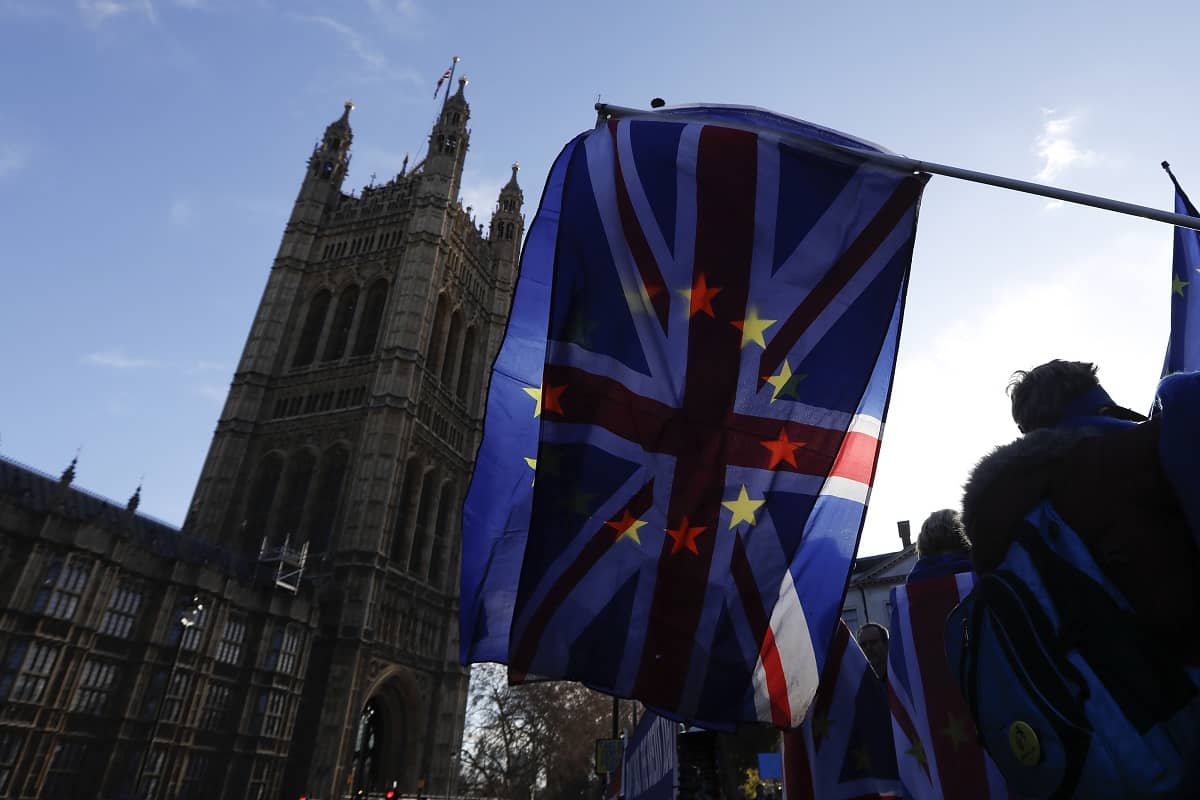Economy
Boris Johnson Asks EU for Brexit Delay, But Hopes He Won’t Need It

(Bloomberg) –Boris Johnson sent the letter to Brussels he never wanted to send.
Bound by a law passed by opposition Members of Parliament, he formally asked the European Union to delay Brexit until Jan. 31, but made it clear he’d rather there was no extension. European Council President Donald Tusk said he’ll start consulting EU leaders on how to react, which may take a few days. A unanimous vote is required to grant an extension.
According to a Downing Street official, the government sent three letters in total to the EU — the Benn Act extension, as stipulated in law, but which the PM didn’t personally sign; a cover note from Tim Barrow, Britain’s envoy to the EU; and a letter signed by the PM arguing that further delay is a mistake. Johnson also pledged to Parliament his desire to push on with plans to leave the bloc by his Oct. 31 deadline.
“A further extension would damage the interests of the U.K. and our EU partners, and the relationship between us,” Johnson said in the signed letter to Tusk. “We must bring this process to a conclusion so that we can move to the next phase.”
After Saturday’s defeat in Parliament, the prime minister never got his chance to see if MPs would support the deal he brought back from Brussels. He now plans to push through the legislation in less than two weeks. The Withdrawal Agreement Bill could begin its journey as soon as Tuesday, after Johnson makes another attempt on Monday to get Parliament to sign off on the principle of his deal, making the extension unnecessary.
After 3 1/2 years of political turmoil triggered by the referendum, Britain’s departure from the bloc is still not completely baked in. Hundreds of thousands of pro-EU demonstrators gathered around Westminster while MPs were debating in the House of Commons.
Possible outcomes range from delaying Brexit — allowing time for a general election or a second referendum on leaving — to a battle in court, or a chaotic and economically damaging departure from the bloc without a deal. But if Johnson succeeds with his latest gambit, he’ll be able to meet his month-end deadline and push for an election.
Based on how MPs voted Saturday — the government lost by 16 — and their comments during the debate, Johnson might still have a chance. It could come down to a single vote.
Johnson’s key problem could lie in wooing back his allies in the Democratic Unionist Party. Their 10 votes made the difference between defeat and victory.
They had supported Johnson until this week, when he signed a Brexit deal that creates a customs border in the Irish Sea — a concession designed to secure Ireland and the EU’s support for the agreement. The DUP angrily denounced that during the debate.
The day saw Conservative MPs, both current and almost all those he expelled last month, saying they would vote with him, as well as a small number of Labour MPs. If he can hold that coalition together for two weeks, he might have a chance.
Hours after the vote, French President Emmanuel Macron made it clear the deal had been negotiated and that further delay in Britain’s departure was “in no one’s interest.”
-

 Insurance2 months ago
Insurance2 months agoSupporting Community Wellness: Liva Insurance Sponsors Muscat Marathon 2026 with Free Health Checkups
-

 News2 months ago
News2 months agoAI Security Conference 2025 Hosted by Securado Highlights the Changing Cybersecurity Landscape
-

 Interviews1 month ago
Interviews1 month agoEXCLUSIVE INTERVIEW: TLS Rebranding Marks Strategic Leap Toward Innovation, Sustainability & Growth
-

 Dossier1 week ago
Dossier1 week agoDossier, 2026
-

 Insurance1 month ago
Insurance1 month agoLiva Insurance Supports Community Wellness Through “Experience Oman – Muscat Marathon 2026”
-

 Investment3 weeks ago
Investment3 weeks agoLalan Inaugurates Its First Overseas Manufacturing Facility, Marking Sri Lanka’s First Investment in SOHAR Freezone
-

 Banking & Finance1 week ago
Banking & Finance1 week agoNational Finance Unveils Exclusive Ramadan Offers on Auto Financing
-

 Food & Dining3 weeks ago
Food & Dining3 weeks agoGrand Millennium Muscat’s exclusive Ramadan Iftar and Suhoor Experiences




























